February 20 stands as one of history’s most eventful days, witnessing the rise and fall of empires, groundbreaking discoveries, and moments that shaped our modern world across centuries of human achievement.

Politics and Government Events on February 20
1901 – Hawaii Territory Legislature First Convenes
The newly established Hawaii Territory marked a milestone in American expansion when its legislature convened for the first time. This historic session established the governmental framework for the former Kingdom of Hawaii.
The territorial legislature began crafting laws that would govern the Pacific islands under American rule. This moment represented Hawaii’s transition from independent kingdom to integrated American territory, decades before statehood.
1933 – Congress Approves Blaine Act to Repeal Prohibition
The United States Congress took decisive action to end the failed experiment of Prohibition by approving the Blaine Act. This legislation sent the Twenty-first Amendment to state ratifying conventions for final approval.
The vote represented a dramatic shift in American social policy after thirteen years of alcohol prohibition. Congress recognized that Prohibition had created more problems than it solved, paving the way for legal alcohol sales.
1933 – Hitler Secretly Meets German Industrialists

Adolf Hitler conducted clandestine meetings with Germany’s most powerful industrialists to secure financing for the Nazi Party’s election campaign. These secret negotiations would prove crucial to the Nazi rise to power.
German business leaders agreed to provide substantial financial backing for Hitler’s political ambitions. This unholy alliance between corporate interests and fascist ideology helped fuel one of history’s darkest chapters.
1988 – Nagorno-Karabakh Votes for Independence
The Nagorno-Karabakh Autonomous Oblast voted overwhelmingly to secede from Azerbaijan and join Armenia, igniting ethnic tensions. This decision triggered the First Nagorno-Karabakh War between the two Soviet republics.
The vote represented decades of simmering ethnic conflict in the Caucasus region. Local Armenian populations sought reunification with their homeland, creating a crisis that would outlast the Soviet Union itself.
1991 – Enver Hoxha Statue Toppled in Albania
Angry protesters in Tirana brought down a massive statue of longtime Albanian dictator Enver Hoxha in a dramatic display of popular uprising. The statue’s destruction symbolized the end of communist rule in Albania.
Thousands of citizens participated in dismantling the monument to their former oppressor. This act of defiance marked Albania’s transition from isolated communist state to emerging democracy in post-Cold War Europe.
2005 – Spain Approves European Union Constitution
Spain became the first European nation to hold a referendum on the proposed Constitution of the European Union. Spanish voters approved the measure by a substantial margin despite low voter turnout.
The referendum demonstrated Spanish commitment to deeper European integration. However, the low participation rate foreshadowed challenges that would ultimately doom the constitutional project across Europe.
2014 – Euromaidan Protesters Killed in Ukraine
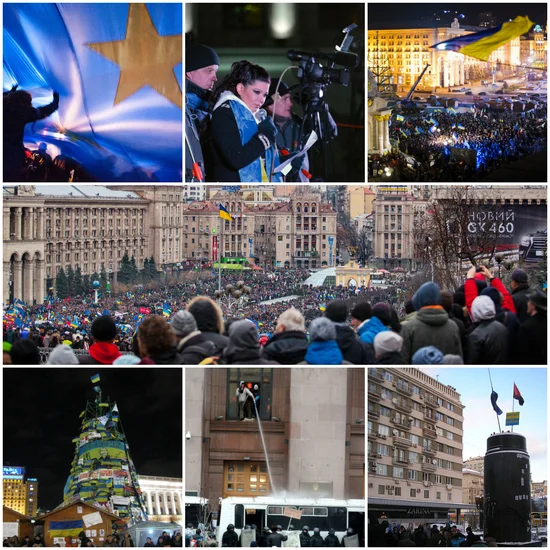
Dozens of anti-government protesters died in Ukraine’s capital Kyiv during the Euromaidan demonstrations, many reportedly killed by government snipers. These deaths marked the bloodiest day of the Ukrainian revolution.
The killings galvanized international support for the Ukrainian opposition movement. This tragic escalation ultimately led to the fall of President Viktor Yanukovych’s government and Ukraine’s pivot toward the West.
Military and Naval History on February 20
1942 – Lieutenant O’Hare Becomes First WWII Flying Ace
Lieutenant Edward O’Hare achieved legendary status by becoming America’s first World War II flying ace in the Pacific Theater. His extraordinary aerial combat skills made him a national hero.
O’Hare’s remarkable achievements in aerial warfare boosted American morale during the dark early days of the Pacific War. His legacy would later be honored when Chicago’s international airport was named in his memory.
1944 – Big Week Bombing Campaign Begins
American bombers launched the “Big Week” campaign with massive raids on German aircraft manufacturing centers across Nazi-occupied Europe. This coordinated assault aimed to cripple German air power before D-Day.
The sustained bombing offensive targeted factories producing fighter aircraft desperately needed by the Luftwaffe. These raids marked a turning point in the air war over Europe, securing Allied air superiority.
1944 – United States Captures Eniwetok Atoll

American forces successfully captured Eniwetok Atoll in the Marshall Islands, continuing their island-hopping campaign across the Pacific. This strategic victory brought Allied forces closer to Japan’s home islands.
The atoll’s capture provided another crucial airbase for continued Pacific operations. Japanese defenders fought fiercely but could not prevent the inevitable American advance westward across the Pacific.
2009 – Tamil Tigers Aircraft Shot Down

The Sri Lankan military successfully intercepted and destroyed two Tamil Tigers aircraft packed with explosives before they could reach their target. These kamikaze-style attacks represented the rebels’ desperation in their final offensive.
The failed aerial assault demonstrated the government’s growing military superiority over the separatist movement. This incident occurred during the final phase of Sri Lanka’s decades-long civil war.
Science and Discovery Milestones on February 20
1935 – Caroline Mikkelsen Sets Foot in Antarctica

Caroline Mikkelsen achieved a historic milestone by becoming the first woman to set foot on the Antarctic continent. Her landing marked a significant moment in polar exploration and women’s participation in scientific expeditions.
Mikkelsen’s achievement opened new possibilities for female participation in Antarctic research. Her courageous step onto the frozen continent challenged traditional gender barriers in scientific exploration.
1962 – John Glenn Orbits Earth
Astronaut John Glenn became the first American to orbit Earth aboard the Friendship 7 spacecraft, completing three orbits in four hours and 55 minutes. This achievement marked a crucial victory in the Space Race against the Soviet Union.
Glenn’s successful mission restored American confidence in their space program after early Soviet successes. His orbital flight demonstrated that American technology could match Soviet achievements in space exploration.
1965 – Ranger 8 Crashes Into Moon

The Ranger 8 spacecraft successfully completed its mission by crashing into the Moon after photographing potential landing sites for future Apollo missions. These detailed images proved invaluable for mission planning.
The probe transmitted thousands of high-resolution photographs before its planned destruction. These images helped NASA scientists select safe landing zones for the upcoming manned lunar missions.
1971 – China Academy of Space Technology Established
China established the China Academy of Space Technology in Beijing, marking the country’s commitment to becoming a major space power. This institution became China’s primary satellite research and development center.
The academy’s founding represented China’s determination to develop independent space capabilities. This strategic decision would eventually lead to China’s emergence as a leading spacefaring nation.
1986 – Soviet Union Launches Mir Space Station
The Soviet Union launched the revolutionary Mir spacecraft, beginning its 15-year orbital mission. This space station would remain occupied for ten years, setting endurance records for human spaceflight.
Mir represented the pinnacle of Soviet space technology and international cooperation. The station served as humanity’s first permanent outpost in space, hosting astronauts from multiple nations.
Cultural and Arts Events on February 20
1909 – Futurist Manifesto Published
The revolutionary Futurist Manifesto appeared in the French journal Le Figaro, launching an influential artistic movement. This document challenged traditional artistic conventions and embraced technological modernity.
The manifesto’s publication marked the beginning of Futurism’s impact on art, literature, and architecture. Artists across Europe embraced the movement’s celebration of speed, technology, and dynamic change.
1943 – Norman Rockwell’s Four Freedoms Published
The Saturday Evening Post published the first of Norman Rockwell’s iconic Four Freedoms paintings, supporting President Roosevelt’s vision of universal human rights. These artworks became symbols of American democratic ideals.
Rockwell’s paintings translated abstract political concepts into relatable human experiences. The Four Freedoms series became some of the most recognizable images in American popular culture.
1943 – Hollywood Agrees to War Information Censorship
American movie studio executives agreed to allow the Office of War Information to censor films during World War II. This agreement demonstrated Hollywood’s commitment to supporting the war effort.
The censorship arrangement ensured that films would promote positive messages about the war. This collaboration between entertainment industry and government shaped American wartime propaganda efforts.
2003 – The Station Nightclub Fire

A pyrotechnics display during a Great White concert at The Station nightclub in West Warwick, Rhode Island, ignited a devastating fire. The tragedy killed 100 people and injured over 200 others.
The fire exposed serious safety violations and inadequate emergency exits at the venue. This disaster led to nationwide reforms in nightclub fire safety regulations and emergency procedures.
Religious and Social Events on February 20
1905 – Supreme Court Upholds Vaccination Mandate
The United States Supreme Court upheld Massachusetts’s mandatory smallpox vaccination program in the landmark case Jacobson v. Massachusetts. This decision established the government’s authority to protect public health.
The ruling balanced individual liberty against collective welfare during health emergencies. This precedent would influence public health policy for generations, including modern vaccination requirements.
1920 – Jacinta Marto Dies
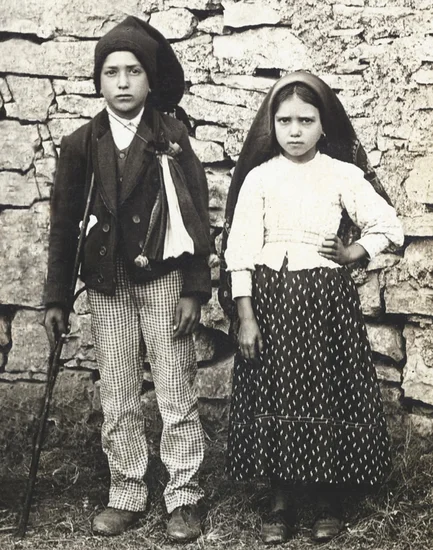
Jacinta Marto, one of the three children who witnessed the apparitions of Our Lady of Fátima, died at age ten. Her death fulfilled prophecies made during the miraculous visions in Portugal.
The young visionary’s death deepened the mystery surrounding the Fátima apparitions. Jacinta would later be canonized as a saint by the Catholic Church, recognizing her spiritual significance.
1956 – Emmett Ashford Breaks Baseball’s Color Barrier

Emmett Ashford became the first African-American umpire in organized baseball when he was authorized as a substitute umpire in the Southwestern International League. This achievement broke another barrier in professional sports.
Ashford’s appointment represented progress in baseball’s integration beyond just players. His pioneering role opened opportunities for minority participation in all aspects of America’s national pastime.
1971 – Emergency Broadcast System Accidentally Activated

The United States Emergency Broadcast System experienced a massive failure when it was accidentally activated nationwide. The false alarm confused millions of Americans who heard the ominous emergency tones.
The incident exposed serious flaws in the emergency communication system designed for nuclear war. This embarrassing mistake led to improved safeguards and procedures for emergency broadcasts.
Business and Economic Events on February 20
1913 – Canberra Construction Begins
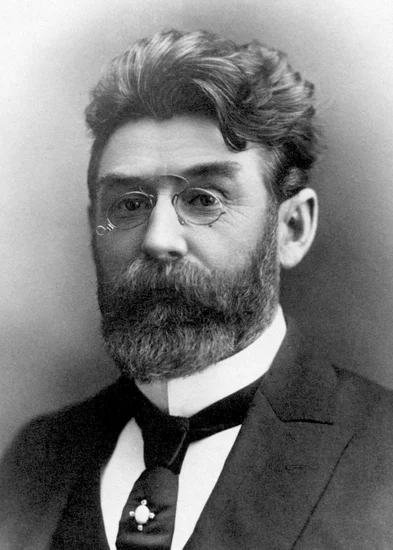
King O’Malley drove the first survey peg to mark the official commencement of construction work on Canberra, Australia’s planned capital city. This ceremonial act began one of the 20th century’s most ambitious urban planning projects.
The new capital represented Australia’s commitment to creating a purpose-built seat of government. Canberra’s construction would take decades to complete, establishing a unique example of planned urban development.
1931 – Anarchist Uprising in Paraguay
An anarchist uprising in Encarnación, Paraguay, briefly transformed the city into a revolutionary commune. The rebels established alternative governance structures before being suppressed by government forces.
The short-lived commune demonstrated anarchist political theories in practice. This experiment in alternative governance reflected broader social tensions in Depression-era Latin America.
1958 – Avro Arrow Program Cancelled
The Canadian government cancelled the Avro Arrow program to design and manufacture supersonic jet fighters, ending one of the country’s most ambitious aerospace projects. The decision sparked intense political debate across Canada.
The cancellation devastated Canada’s aerospace industry and scattered talented engineers to other countries. This controversial decision remains a defining moment in Canadian industrial and military history.
Transportation and Infrastructure on February 20
1931 – San Francisco-Oakland Bay Bridge Approved
The United States Congress approved California’s construction of the San Francisco-Oakland Bay Bridge, authorizing one of America’s most ambitious infrastructure projects. This massive undertaking would connect two major cities.
The bridge’s approval represented federal confidence in large-scale public works during the Great Depression. Construction would provide thousands of jobs while creating a vital transportation link for the Bay Area.
1957 – Merchant Marine Academy Becomes Permanent
The United States Merchant Marine Academy achieved permanent status as a Service Academy, securing its role in training America’s maritime officers. This recognition elevated the academy’s prestige and funding.
The academy’s permanent designation reflected America’s commitment to maintaining a strong merchant marine. This decision ensured continued training for officers essential to national defense and commerce.
2015 – Swiss Train Collision Injures 49

Two trains collided in the Swiss town of Rafz, injuring as many as 49 people and forcing Swiss Federal Railways to cancel numerous services. The accident highlighted safety concerns in Switzerland’s normally reliable rail system.
The collision prompted extensive investigation into railway safety procedures. Swiss authorities implemented enhanced safety measures to prevent similar accidents in their world-renowned transportation network.
Sports and Recreation on February 20
1998 – Tara Lipinski Wins Olympic Gold

American figure skater Tara Lipinski became the youngest Olympic figure skating gold medalist at age 15 during the 1998 Winter Olympics in Nagano, Japan. Her victory captivated audiences worldwide.
Lipinski’s triumph represented the culmination of years of intense training and sacrifice. Her achievement inspired a new generation of young athletes to pursue Olympic dreams.
1925 – Tochinishiki Kiyotaka Born

Japanese sumo wrestler Tochinishiki Kiyotaka was born, destined to become the 44th Yokozuna, sumo’s highest rank. His future achievements would make him one of Japan’s most celebrated athletes.
Tochinishiki’s birth marked the beginning of a legendary career in sumo wrestling. His eventual rise to Yokozuna status would bring honor to his stable and delight to sumo fans.
1984 – Charles Barkley Born

Future NBA superstar Charles Barkley was born, beginning the life of one of basketball’s most dynamic and controversial players. His powerful playing style and outspoken personality would make him a sports icon.
Barkley’s birth preceded a career that would revolutionize the power forward position. His combination of athleticism and charisma would make him one of basketball’s most memorable personalities.
Notable Births on February 20
1904 – Ansel Adams Born
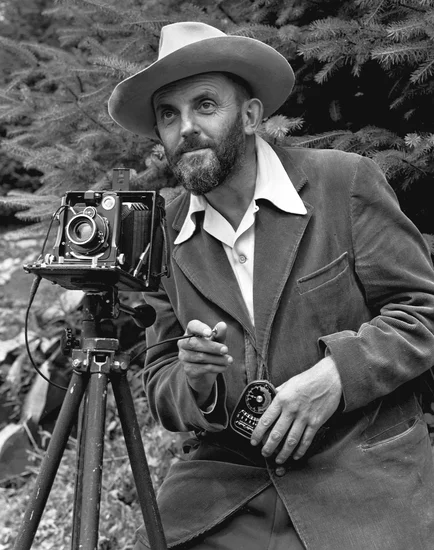
American photographer and environmentalist Ansel Adams was born, destined to become one of the most influential landscape photographers in history. His black-and-white images of the American West would define nature photography.
Adams would develop the Zone System of photography, revolutionizing the technical aspects of the medium. His artistic vision combined with environmental activism would inspire generations of photographers and conservationists.
1927 – Sidney Poitier Born

Bahamian-American actor Sidney Poitier was born, beginning the life of a groundbreaking performer who would shatter racial barriers in Hollywood. His dignified screen presence would challenge stereotypes and open doors for minority actors.
Poitier would become the first Black actor to win an Academy Award for Best Actor. His career achievements extended beyond entertainment to include directing and diplomatic service.
1951 – Gordon Brown Born
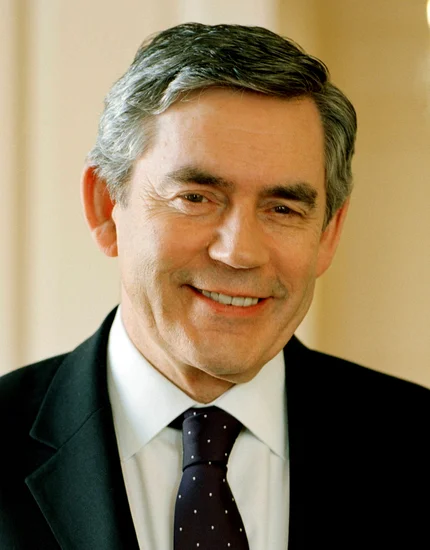
Future British Prime Minister Gordon Brown was born in Scotland, beginning the life of one of Britain’s most influential politicians. His economic expertise would shape Labour Party policy for decades.
Brown would serve as Chancellor of the Exchequer before becoming Prime Minister during the 2008 financial crisis. His leadership during economic turmoil would define his political legacy.
1963 – Charles Barkley Born

American basketball player Charles Barkley was born, destined to become one of the NBA’s most dominant power forwards. His aggressive playing style and colorful personality would make him a sports legend.
Barkley would earn the nickname “Sir Charles” for his court dominance and outspoken commentary. His post-playing career as a television analyst would make him equally famous off the court.
1967 – Kurt Cobain Born

American singer-songwriter Kurt Cobain was born, beginning the life of Nirvana’s lead singer who would revolutionize popular music. His artistic vision would define the grunge movement of the 1990s.
Cobain’s raw musical style and introspective lyrics would speak to an entire generation. His influence on alternative rock would persist long after his tragic death at age 27.
1988 – Rihanna Born

Barbadian singer and actress Rihanna was born, beginning the life of one of the world’s most successful recording artists. Her powerful voice and business acumen would make her a global superstar.
Rihanna would become one of the best-selling music artists of all time with numerous chart-topping hits. Her ventures into fashion and cosmetics would establish her as a successful entrepreneur.
2003 – Olivia Rodrigo Born

American actress and singer Olivia Rodrigo was born, beginning the life of a future pop sensation. Her confessional songwriting style would resonate with Generation Z audiences worldwide.
Rodrigo would achieve massive success with her debut album, breaking numerous streaming records. Her authentic approach to teenage emotions would establish her as a defining voice of her generation.
Notable Deaths on February 20
1907 – Henri Moissan Dies
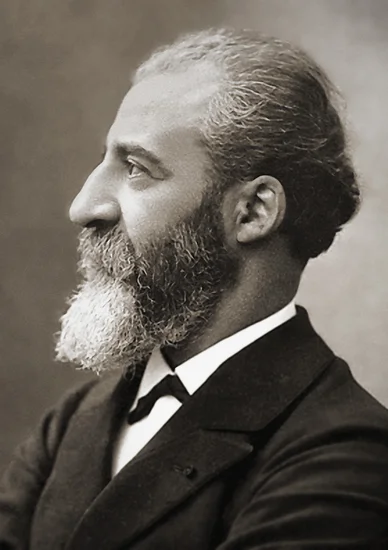
French chemist Henri Moissan died, ending the life of a Nobel Prize laureate who made groundbreaking contributions to chemistry. His work with fluorine and development of the electric arc furnace revolutionized the field.
Moissan’s research in isolating fluorine earned him the Nobel Prize in Chemistry in 1906. His electric furnace invention enabled the production of artificial diamonds and advanced metallurgy.
1920 – Robert Peary Dies
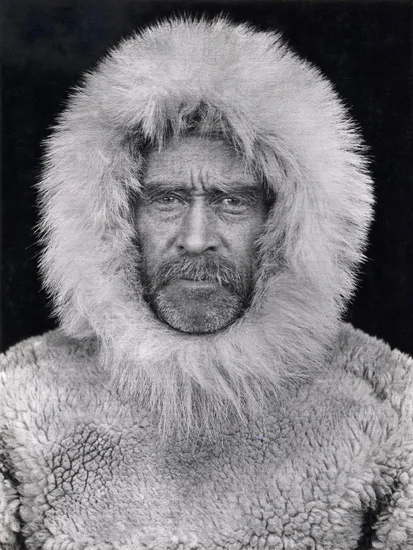
American admiral and explorer Robert Peary died, concluding the life of the controversial figure who claimed to be first to reach the North Pole. His Arctic expeditions captured the public imagination despite ongoing debates about his achievements.
Peary’s alleged polar conquest remains disputed by historians and explorers. His dedication to Arctic exploration advanced geographic knowledge and inspired future generations of adventurers.
1963 – Jacob Gade Dies
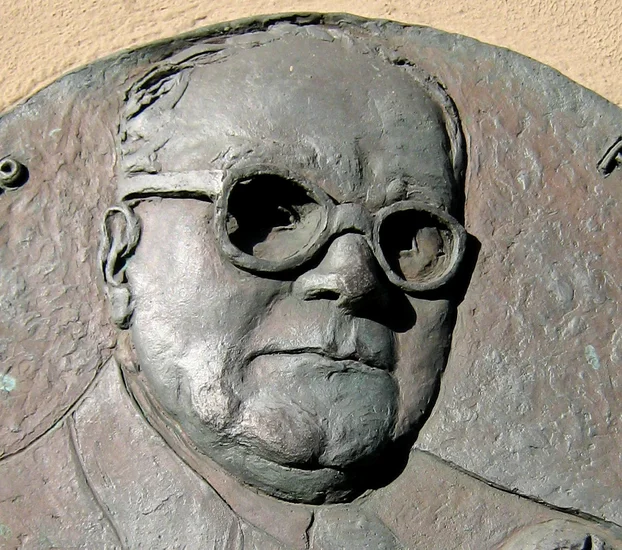
Danish violinist and composer Jacob Gade died, ending the life of the musician best known for his tango “Jalousie.” His compositions gained international recognition and remain popular today.
Gade’s “Jalousie” became one of the most recorded pieces of light classical music. His melodic gifts and understanding of popular taste made him Denmark’s most internationally successful composer.
1976 – René Cassin Dies

French lawyer and judge René Cassin died, concluding the life of a Nobel Peace Prize laureate who helped draft the Universal Declaration of Human Rights. His work established fundamental principles of international law.
Cassin’s contributions to human rights law earned him the Nobel Peace Prize in 1968. His legal scholarship and advocacy established frameworks for protecting human dignity worldwide.
1999 – Gene Siskel Dies

American film critic Gene Siskel died, ending the life of the influential reviewer who, with Roger Ebert, revolutionized movie criticism. Their television partnership made film criticism accessible to mainstream audiences.
Siskel’s analytical approach and passionate advocacy for cinema elevated the art of film criticism. His debates with Ebert became legendary, influencing how Americans discussed and appreciated movies.
2005 – Hunter S. Thompson Dies
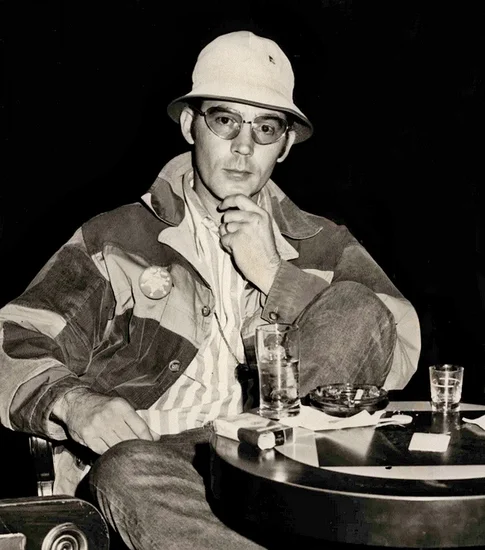
American journalist and author Hunter S. Thompson died, concluding the life of the creator of gonzo journalism. His revolutionary approach to reporting blurred the lines between observer and participant.
Thompson’s unique style influenced generations of journalists and writers. His books, including “Fear and Loathing in Las Vegas,” became cultural touchstones that captured the spirit of counterculture America.
Holidays and Observances on February 20
World Day of Social Justice
The United Nations designated February 20 as World Day of Social Justice, promoting fair treatment and equal opportunities for all people. This international observance highlights the importance of social equity in global development.
The day encourages governments and organizations to address poverty, discrimination, and inequality. Educational institutions and advocacy groups use this occasion to promote awareness of social justice issues.
Day of Heavenly Hundred Heroes in Ukraine
Ukraine observes the Day of Heavenly Hundred Heroes, commemorating protesters killed during the 2014 Euromaidan demonstrations. This national day of remembrance honors those who died fighting for democracy and European integration.
The observance pays tribute to ordinary citizens who made the ultimate sacrifice for their country’s future. Memorial services and ceremonies across Ukraine remember the fallen heroes of the revolution.
Christian Feast Days
The Christian calendar recognizes several saints on February 20, including Francisco Marto and Jacinta Marto, the child visionaries of Fátima. These feast days honor religious figures who demonstrated exceptional faith and devotion.
Catholic and Orthodox churches worldwide celebrate these saints’ contributions to Christian spirituality. The feast days provide opportunities for reflection on faith, sacrifice, and divine inspiration.
